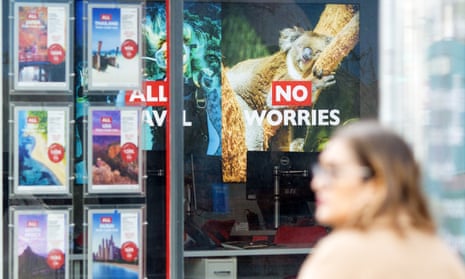It was John Maynard Keynes who developed the idea of “animal spirits” as a kind of spontaneous market optimism, or pessimism, which lent a crucial emotional dimension to economic outcomes. The unveiling of Boris Johnson’s roadmap out of social restrictions was accompanied by a glimpse of how they might play out in a Covid context.
As people rushed to bet on the possibility of taking a foreign holiday in July or August, easyJet was among the top risers on the FTSE 250 on Tuesday, reporting a 337% leap in bookings. Shares in the long-suffering hospitality and entertainment industries jumped too. Vaccine rollout and the prime minister’s roadmap have understandably persuaded the population that a definitive exit from lockdown purdah is at hand. For its part, the government, quite reasonably, believes that the release of pent-up consumer energy will fuel a significant post-pandemic recovery. Last week’s UK consumer confidence index was sufficiently buoyant to lead analysts to talk of a “return to normality” in the coming year.
Such speculation is both plausible and dangerous. Animal spirits and consumer confidence will not be enough to repair the deep structural damage wrought on millions of people’s lives by the pandemic. Without government intervention lasting far beyond the summer, there is a danger that two nations will emerge from this coronavirus nightmare: one driving an economic boom as it spends some of the savings accrued over 15 months of enforced hibernation; the other blighted by debt, unemployment, unaffordable rent arrears, and, in communities where vaccination take-up has been lower, a continuing risk of Covid.
According to recent data, household savings are up by about 10% compared to a year ago. But low-paid families have seen their income squeezed and the number forced into actual destitution has doubled to half a million. An estimated three-quarters of a million renters are behind on payments. Tuesday’s unemployment figures, which did not reflect the 1 million or so self-employed currently without work, recorded a rise to 5.1%, up 1.5% from a year ago. But the true damage done to businesses will not be known until the furlough scheme is removed, when as many as one in 10 may find themselves jobless.
The government is gambling that an inevitable rise in infections, as a result of easing restrictions, can be dealt with through existing vaccines. A new variant could confound those hopes. Clearly though, it will be a cause for relief and celebration when restaurants are safely booked up every night, young people are back in nightclubs and city centres are buzzing again. The UK economy, overly reliant on consumer-led growth, desperately requires the shot of adrenaline that the return of good times will bring. But when that time comes, those unable to join the party, through no fault of their own, cannot be abandoned to their post-Covid fate. Louise Casey, Mr Johnson’s former adviser on homelessness, has called for a new, Beveridge-style royal commission to address the needs of the 25% or so of the population who, she says, have been “badly wounded” by the pandemic. Thus far, the chancellor, Rishi Sunak’s grudging extensions of furlough and other measures, such as the £20 universal credit uplift, suggest the Treasury is champing at the bit to move in precisely the opposite direction.
Better times, hopefully, are not too far away. But in them, the government has a moral duty to reflect the spirit of solidarity that emerged last spring, as neighbours looked out for each other and low-paid key workers were clapped on doorsteps. In the dismal, divided landscape of Benjamin Disraeli’s famous novel, Sybil, the rich and the poor resemble two nations, as if they were “dwellers in different zones or inhabitants of different planets.” That must not be allowed to become Britain’s post-Covid reality; a world where golf courses, cinemas and budget airlines are packed, but so too are the nation’s food banks.
